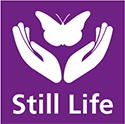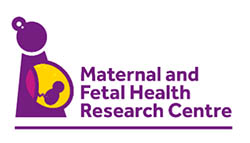Based at St Mary’s Hospital in central Manchester, the Maternal and Fetal Health Research Centre is one of the largest pregnancy research groups in Europe, carrying out world-class research to find solutions to various pregnancy problems.
Many of our research projects are focused on stillbirth and the related problems of fetal growth restriction, diabetes, and high blood pressure (hypertension). We host the Manchester Tommy’s Research Centre.
Our clinical and research scientists work together to:
- provide a better understanding of fertility, infertility, and the start of a healthy pregnancy;
- investigate how and why pregnancy problems happen, and their long-term consequences;
- develop new ways of diagnosing and treating pregnancy problems;
- change the way patients are treated to improve patient care and the health of mothers and their babies.
We have a range of specialist clinics caring for patients within our research centre. These are at the heart of our strategy to translate our new discoveries into making real differences in treating pregnancy complications.
To support our research, we carefully collect biological samples from pregnant women and their babies for the Tommy’s National Reproductive Health Biobank, with consent. These samples help our researchers to find new ways to diagnose, treat and prevent pregnancy complications.
Our research
Our research spans the placenta, fertility and environmental factors affecting early pregnancy and child growth.
We focus on seven key areas of research:

Get involved
As a member of the public, you can get involved in our work in various ways.
Whether you want to participate in a study or feed back your views on our research, there are several ways that you can become involved with the Centre.
Featured project: Still Life
 Through a series of creative workshops, this project explored personal experiences of stillbirth. It provided an opportunity for those affected to share their views on research aimed at stillbirth prevention, and also the care and support of families who face the loss of a baby.
Through a series of creative workshops, this project explored personal experiences of stillbirth. It provided an opportunity for those affected to share their views on research aimed at stillbirth prevention, and also the care and support of families who face the loss of a baby.

Study with us
The University of Manchester offers a number of programmes in the area of maternal and fetal health.
Postgraduate taught courses
The MSc Reproduction and Pregnancy course is delivered by internationally renowned researchers to provide training in reproductive and pregnancy research.
It is suitable for scientists, intercalating medical students and practicing clinicians wishing to advance their training.
Postgraduate research opportunities
There are occasional opportunities to carry out projects in maternal and fetal health as a postgraduate researcher. More information can be found on the Faculty of Biology, Medicine and Health website.
Undergraduate opportunities
We offer research projects for third-year MBChB undergraduate students via the APEP, and quality improvement projects for fifth-year students through the QEPEP.
We also offer projects for final-year School of Biological Sciences undergraduates, including those wishing to self-arrange projects. Please refer to your course handbooks for more details on these units.
Contact us
You can get in touch with us by contacting individual members of our Centre.
A list of our members can be found in the University’s Research Explorer.
![]() Follow us on Twitter: @MFH_Research
Follow us on Twitter: @MFH_Research
 Follow us on Instagram: @UOMMFHResearch
Follow us on Instagram: @UOMMFHResearch

